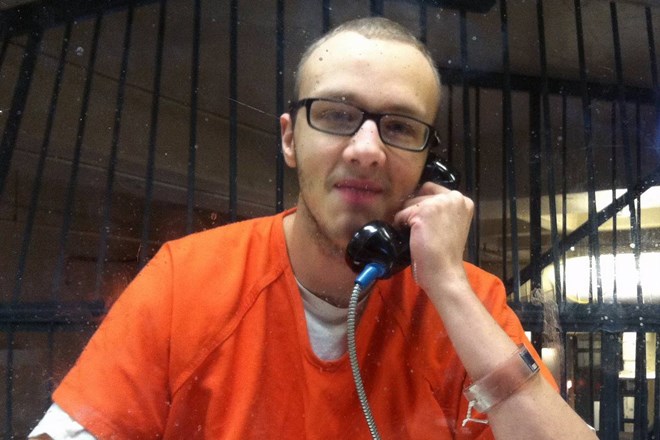
Saturday, December 24, 2016
By NICOLE HONG
U.S. judges grapple with how to punish young Islamic State sympathizers who could become more dangerous after decades in prison

Nicholas Teausant in June was sentenced to 12 years in prison, three years longer than the government requested, after he admitted to making attempts to travel to Syria to join Islamic State. PHOTO: ZUMA PRESS
Federal judges this year faced the unprecedented challenge of sentencing dozens of Islamic State supporters across the country, with punishments ranging from no prison time to decades behind bars.
In Minnesota, 20-year-old Khaalid Abdulkadir received three years probation for tweeting threats to kill federal law-enforcement officers after one of his friends had been arrested for providing support to Islamic State.
In Ohio, 22-year-old Christopher Cornell received 30 years in prison for plotting to attack the U.S. Capitol in Washington on the terrorist group’s behalf.
The wide range reflects the difficult question at sentencing in many of these cases: Should judges give young Americans who support Islamic State a chance to turn their lives around, or a lengthy prison sentence to ensure public safety?
Since 2014, more than 110 suspected Islamic State sympathizers have been prosecuted in the U.S. for a broad array of criminal activities, including making false statements to the government and traveling overseas to fight with terrorists. Roughly half of these cases have resulted in convictions, while the other half are pending, according to Fordham.
Several sentencings are scheduled to happen next year, including one in Brooklyn, N.Y., for Tairod Pugh, who was the first Islamic State sympathizer in the U.S. to be convicted at trial.
No Islamic State supporter in the U.S. has received a life sentence yet. Most defendants are arrested before they commit violence and charged with providing “material support” to terrorists, which carries a maximum 20-year sentence.

In Minnesota, Khaalid Abdulkadir received three years probation for tweeting threats to ‘kill’ federal law-enforcement officers. PHOTO: AMY FORLLITI/ASSOCIATED PRESS
The ones who do carry out lethal attacks—such as Omar Mateen, the shooter who killed 49 people at a gay nightclub in Orlando in June—have typically not survived to face a potential life sentence.
More than a quarter of the sentences have occurred in Minneapolis, whose large Somali population has been a target in recent years for terrorist recruitment.
In an unprecedented move, one federal judge there, Michael J. Davis, last summer asked six defendants to undergo an evaluation before sentencing to see if they could be good candidates for a “deradicalization” program.
Judge Davis ultimately allowed only one defendant, 20-year-old Abdullahi Yusuf, to be released to a halfway house, where he could receive counseling and family group therapy. For another defendant, 22-year-old Guled Omar, who was convicted at trial of conspiring to commit murder in Syria, Judge Davis imposed 35 years in prison, the harshest sentence so far in an Islamic State case.
The deradicalization effort has caught the attention of judges around the country. In Anaheim, Calif., a federal judge in October raised the possibility of assigning such a program to 26-year-old Muhanad Badawi, who was convicted at trial for helping a friend who wanted to join Islamic State overseas. Mr. Badawi ultimately received 30 years in prison.
Most Islamic State defendants are between the ages of 18 and 26 at the time of their arrest, which means many of them don’t have a criminal history and could become more dangerous after decades in prison, some lawyers say. On average, Islamic State supporters under the age of 21 have been receiving lighter sentences, according to Fordham.
Still, most judges tend to impose the harshest sentence possible under the law for terrorist defendants. Terrorism, unlike other types of violent offenses, is a crime in which law-enforcement officials feel there can be no room for error. No judge wants to be the one who gave a lenient sentence to someone who ends up committing a terrorist attack.
In June, a federal judge in Sacramento, Calif., sentenced 23-year-old Nicholas Teausant to 12 years in prison, three years longer than the government requested, after Mr. Teausant admitted to making attempts to travel to Syria to join Islamic State.
“Terrorism has to become a zero-tolerance crime,” U.S. District Judge John Mendez said. “It is the court’s responsibility to fashion a sentence that takes any and all steps to minimize...any risk that you might pose in the future.”